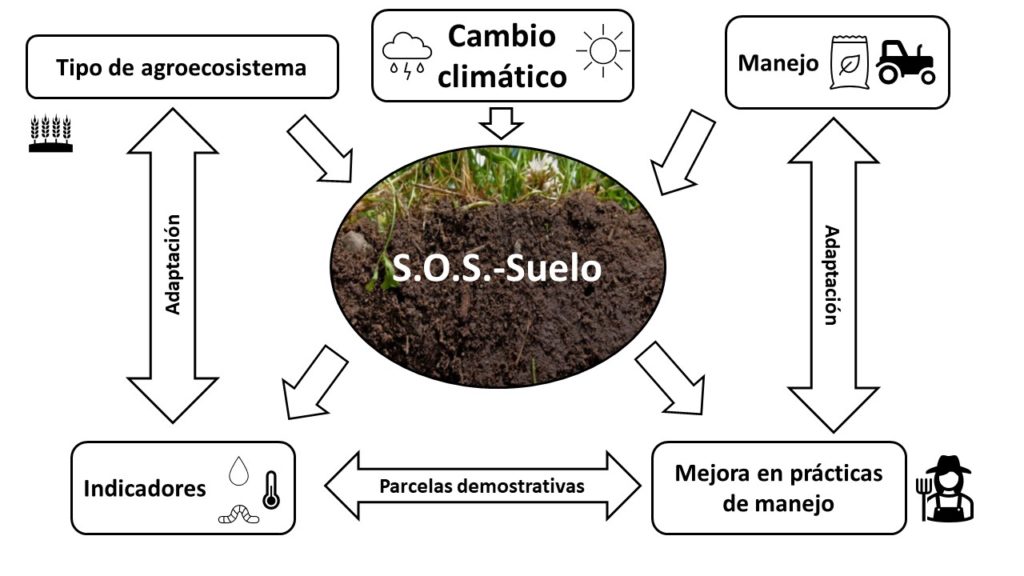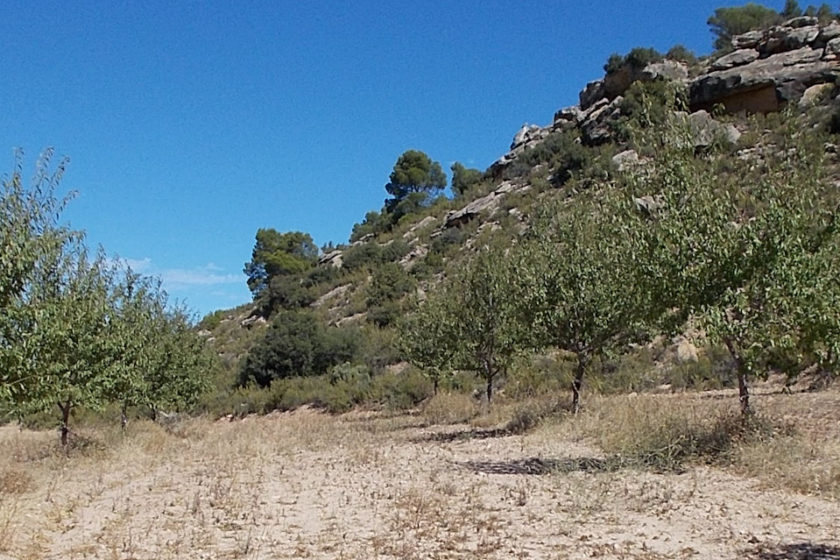A demonstration project within the AGROALNEXT Complementary Plan
The Complementary Agri-Food Plan is a new R+D+i programme, a consequence of the protocol signed last February by the General State Administration and the communities of Aragon, Navarre, La Rioja, Valencia, and Murcia, to develop a joint project aimed at the ecological and digital transformation of the agri-food sector in our country.
Among the activities to be carried out in Aragon, CITA will launch the project “Evaluation of soil quality in different agroecosystems and determination of indicators for sustainable management S.O.S. – Suelo”, led by the researcher José Manuel Mirás of the Department of Agricultural Systems, Forestry and Environment. This project aims to address the problem of soil degradation in agricultural land using a comprehensive and multidisciplinary approach. The general objectives of this initiative are to evaluate soil quality in several relevant agroecosystems in Aragon subjected to different management practices, and to promote the use of sustainable practices to maintain soil quality. In addition, as a specific objective, S.O.S.-Suelo contemplates the design of a set of indicators to elaborate a diagnosis of the quality of agricultural soils at two levels: basic (any user could apply it) and advanced (it will allow a more detailed evaluation of soil quality).

This project goes from October 2022 to September 2025 and involves the Agricultural Systems, Forestry and Environment, and Plant Science departments of CITA, and counts with the participation of Aula Dei in one of the work packages. Nine researchers will be involved in this project, four of them belonging to the RAMA Group.
The expected results of the S.O.S.-Soil project are: i) preparation of a guide/protocol for carrying out soil quality diagnoses in agricultural systems; ii) preparation of a soil quality prospective in relevant agro-ecosystems in Aragon; iii) implementation of two demonstration plots (one under an annual crop and the other under a perennial crop) in which sustainable soil maintenance practices will be demonstrated. This project is expected to have a positive environmental (e.g. improved soil quality), economic (e.g. reduced production costs) and social (e.g. increased public awareness of the importance of soil conservation) impact.

